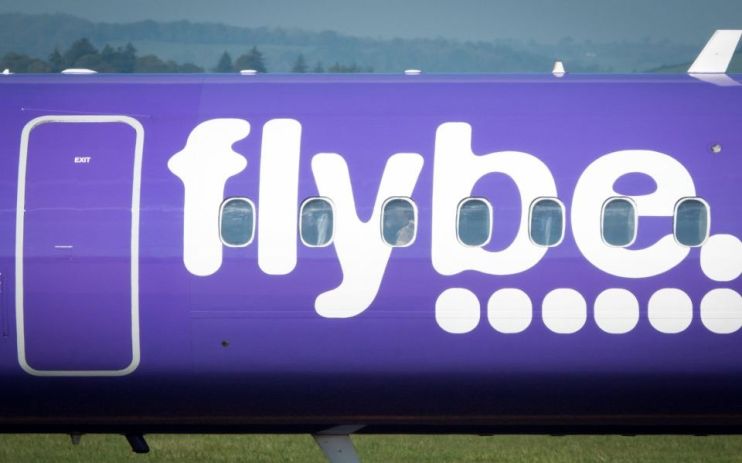Flybe rescue secrecy is absurd

So much for open government. It shouldn’t be too much to expect the ministry responsible for the public finances to disclose the potential liability to taxpayers of a private company bailout.
Yet in the Treasury’s statement about the government-backed rescue of the regional airline Flybe this week, there was scant detail and even fewer numbers.
True, one of the main components of the deal, a state loan on commercial terms, has yet to be finalised.
That fact alone suggests the triumphalist tone of tweets by Andrea Leadsom and Grant Shapps — the business and transport secretaries — proclaiming that Flybe’s future had been salvaged was premature.
With a key financial lifeline yet to be agreed, ministers risk being acutely embarrassed if such a tentative deal unravels.
Also missing from the Treasury’s announcement was confirmation of HMRC’s consent for Flybe to defer elements of its tax bill.
Instead, a promise to review the air passenger duty regime relating to domestic flights in March’s Budget was the only meaningful measure referred to in the statement.
Let’s be clear, though — a review or two of government policy (Shapps has also pledged unspecified measures to bolster regional connectivity) would on their own not have been enough to bring Flybe back from the brink.
As I reported on Sky News on Sunday evening, the Big Four accountancy firm EY was on standby to handle an administration of the company. Without further financial support, that risk remains real, even after the injection of £30m by the consortium which owns it.
The three shareholders in Flybe’s parent Connect Airways have had mixed feelings for several months about substantial new investment, after seeing an initial £100m debt and equity injection since taking ownership fail to address the airline’s challenges. In truth, the alliance between Virgin Atlantic, Stobart Group and Cyrus Capital Partners always looked an unstable one.
Legal protests lodged by rival airlines such as IAG, the owner of British Airways, make the declaration of victory even riskier. Yesterday, Ryanair chief Michael O’Leary added his combative voice to those opposing Flybe’s state-backed rescue. He has threatened to sue the government if the Treasury fails to answer key questions about the arrangements within seven days.
While O’Leary and Willie Walsh, IAG’s chief executive, risk painting themselves as corporate bullies if their interventions lead to the rescue collapsing, they have a point. The Treasury should publish full details of the proposed deal — the current obfuscation is an insult to taxpayers.
No Time To Charge Fees
The title of Daniel Craig’s final outing as 007, No Time To Die, might equally apply to the character’s favourite car maker. Aston Martin Lagonda has had a licence to kill investors’ enthusiasm for its shares since it floated in London little more than a year ago.
The stock price is down by more than three-quarters. This week, analysts at Jefferies argued that the company now needs to raise as much as £500m in fresh equity.
One piece of reassuring news is that Lawrence Stroll, the billionaire Formula 1 team-owner, is close to agreeing a deal to invest £200m in return for a 20 per cent stake.
One question will be how the company intends to get around the issue of pre-emption — a central tenet of UK equity markets. If the investment bankers who advise on the deal are among those who were rewarded handsomely for working on Aston Martin’s flotation, they should offer to waive their fees.
Like another of Craig’s outings, the Spectre of its calamitous IPO will hover over the London market for some time to come.
Chism schism?
It’s not only ministers who are preparing to leave their desks after next month’s Whitehall reshuffle. I hear Nick Chism, chief business adviser at the Department for Business, Energy and Industrial Strategy (Beis), is about to step down from the role.
A former KPMG infrastructure partner, Chism led Beis’ Brexit readiness events across Britain in recent months. Let’s hope the department’s decision not to replace him isn’t a
sign of overconfidence.
Mark Kleinman is City Editor at Sky News @MarkKleinmanSky
